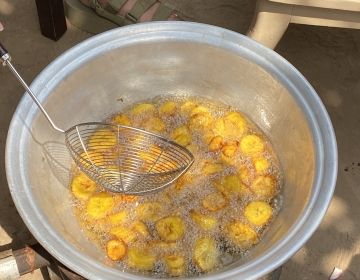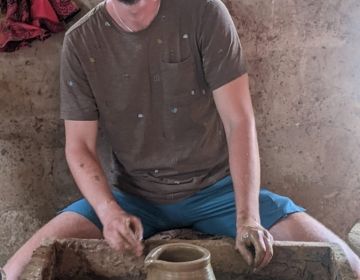Culture Transcends
It is the first day of my traditional African dance class, a room filled with students all dressed in black and white we sit anxiously waiting for class to begin. After numerous announcements and roll call we all start to rise and make a circle, this is the beginning of our first traditional dance. We’re instructed to do this weird stiff walk as we continue so does the walk, and boom! There it hits me a minute into this walk and I’m reminded of one of the most popular songs during my high school career, “hot boy” by Bobby Shmurda but it is the not the song that possesses significance in this moment, it’s the dance, the dance with the same stiff leg movements, the same stiff leg movement I saw the old folks do during cookouts and fish frys. In that moment I begin to realize just how much our cultures reflected, how despite an ocean and 400 years between us culture found a way to manifest, it found a way to transcend.
When looking at Ghanaian and Black culture on the surface there are quite a few differences so it seems, but once you experience it you start to see our reflections in each other. I grew up in the south most of my life South Carolina specifically, I’ve witnessed black culture up close and personal our traditions, beliefs, the way we speak, and our own societal norms. While here in Ghana I can’t help but assume our current culture is a manifestation of our past.
In Ghanaian culture there is an emphasis placed on respecting your elders, you allow them to go first, you speak to them respectfully, you dare not curse in front them, you assist them, they are deemed as wise and very often people turn to them for wisdom, and when referring to an elder you call them auntie or uncle. The same can be said for black culture, at family gatherings my grandmother is always the first to be served and highly respected. Growing up in the south if you didn’t reply to your elders with a yes or no “mam” people assume you have not been raised properly lol.
Extended family is another commonality among Black and Ghanaian culture. When I first arrived my host mom introduced me to my two brothers, Ata and Evans, and her nephew Joseph who was not actually her nephew but, my brother’s best friend. As time went on many other people came to the house to visit and always asked to see “mom” although my host mom only has three biological children she has taken on a pleather of adopted ones. This was not unfamiliar to me, growing up my father always introduced his best friends to us as our uncle so and so, too young to understand the difference between my dad’s best friends and my actual uncle we welcomed them as family also. My father, like my host mom, also has a plethora of adopted children as he likes to call them most of them are players from his football team or my younger brother’s friends no matter who they are, everyone is considered family.
Superstitions is something else we share. Over time Blacks in America have been criticized for our belief in superstitions, so many people have moved away from the idea but for some of us the superstitions still hold true. After a brief chat with my aunties I realized Ghanaian and Black americans alike both believe in superstitions we even believe in some of the same superstitions such as; not sweeping peoples feet out of fear they may never get married, or when your left palm begins to itch you are about to receive some money. A very common Ghanaian superstition deals with the use of the left hand, no one grabs or hands people things with their left hand, growing up in Black southern culture, I was not surprised by the custom I have had many Black grandmas tell me those that write with their left hand write for the devil. So, I was not offended nor taken back when on a visit to the market a woman refused to give me my change using her left hand, instead she placed her right-hand underneath and proceeded to hand me my change. It is in these moments I gain perspective on where I come from and remind me of home.
Aside from familial structures and superstitions, Black americans and Ghanaians mirror each other a lot more than we think not only in our music, style, ideas on marriage, but also in our communities. Throughout the time I spent here I realized Ghanaian neighborhoods have a candy lady just like back in that states. For many of us, where our families originate from is still a huge question. But, coming here has given me more perspective I know that here is where it all started that long before slave ships even docked on the coast I had a culture that was all my own, I had a language, and a rhythm, and so much more. Fast forward to now and I can still see that, Black americans have created our culture with remnants of the past, we have created our own language and customs each laced with fragments of home. We have manifested the culture, traditions, and heritage that was taken from us into our own version yet we are still connected. Though an ocean and 400 years apart culture still transcends.

Related Posts
Exploring Ghanaian Cuisine!
When people asked what I was most excited about when preparing for my semester abroad I replied with "dance, music, and food!" In regards to food specifically, I was looking... keep reading
Arrival In Accra, Ghana: First Impressions and Observations
Who let me book a solo flight to Ghana?! This is what I thought in the days leading up to my departure. I viewed the trip ahead with much anticipation... keep reading
One Village, One History, One Craft
Vume is a small town in the Volta Region of Ghana, which is known for the art of clay pottery. When the craft was introduced, the people of Vume were... keep reading


